Dharmendra
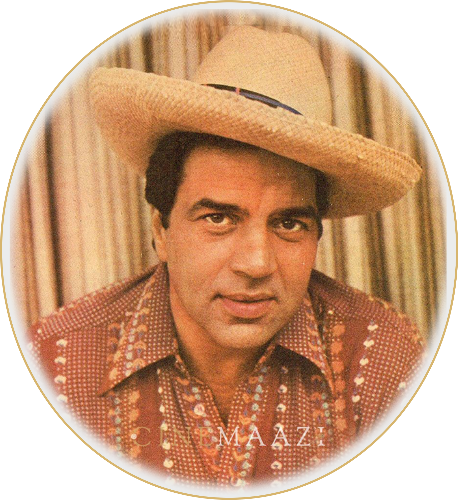
Subscribe to read full article
This section is for paid subscribers only. Our subscription is only $37/- for one full year.
You get unlimited access to all paid section and features on the website with this subscription.
Not ready for a full subscription?
You can access this article for $2 , and have it saved to your account for one year.
- Real Name: Dharam Singh Deol
- Born: 8 December 1935 (Nasrali, Punjab)
- Died: 24 November 2025 (Mumbai)
- Primary Cinema: Hindi
- Parents: Satwant and Kewal Kishan Singh Deol
- Spouse: Hema Malini , Parkash Kaur
- Children: Sunny Deol , Bobby Deol , Esha Deol , Vijeeta, Ajeeta, Ahana Deol
- Grand Children: Karan Deol
The son of a teacher, hailing from the hinterlands of Punjab, Dharmendra would evolve into one of the most loved icons of the Hindi film screen. Interestingly, as a youngster, he had dreamt of following in the footsteps of leading heroes such as Dilip Kumar, Dev Anand and Raj Kapoor, simply in the hope of possessing ‘a flat and a Fiat’. Instead he went on to be counted among the few actors across the globe with more than 100 successful films as a lead actor. Considered as the ‘He-Man’ of Hindi cinema, he symbolised muscled masculinity coupled with vulnerability, sensitivity and good humour. A few of his landmark films include Haqeeqat (1964), Anupama (1966), Satyakam (1969), Mera Gaon Mera Desh (1971), Sholay (1975), Chupke Chupke (1975), and Dharam Veer (1977).
Some of the most popular songs picturised on him include Ya dil ki suno from Anupama (1966), Aaya hai mujhe phir yaad from Devar (1966), Chalkaye jam from Mere Humdum Mere Dost (1968), Kuch kehta hai yeh sawan from Mera Gaon Mera Desh, Aaj mausam bada from Loafer (1973), Pal pal dil ke paas from Blackmail (1973), Rafta rafta dekho aankh from Kahani Kismat Ki (1973), Gaadi bula rahi hai from Dost (1974), Main jat yamla from Pratiggya (1975), and Yeh dosti from Sholay. Honoured with the Filmfare Lifetime Achievement Award for his contribution to Hindi cinema, he was also awarded India's third-highest civilian honour, the Padma Bhushan in 2012.
Born as Dharam Singh Deol on 8 December, 1935 in Nasrali, Punjab, British India, he was an avid film enthusiast from a young age, travelling lengthy distances from his village in Phagwara to a cinema hall to watch films starring his favourite, Suraiya. Taking up a job with an American drilling company, films continued to occupy his mind space. He went on to participate in the nation-wide talent contest for newcomers organised by Filmfare and United Producers; which he ended up winning. Leaving Punjab to come to the city of Bombay, unfortunately the film he was promised, as the winner of the contest, was never made. He went on to audition for a film, only to be met with the damning verdict from the director: that he should give sport, namely hockey, a shot instead. He later made his debut with Arjun Hingorani's Dil Bhi Tera Hum Bhi Tere (1960). He was paid a meagre sum of 51 rupees for his work. The film wasn’t as succesful at the box office; however, it was a slow and steady climb up the slippery slope of success for Dharmendra. Starring in a supporting role in the 1961 film Boy Friend, he went on to be cast as the romantic interest in umpteen films between 1960 and 1967.
The early films in his filmography were largely women-centric, such as Bandini (1963), Anpadh (1962) and Main Bhi Ladki Hoon (1964), strarring Nutan, Mala Sinha, and Meena Kumari respectively, in strong roles. Yet he left his mark with his earnestness and basic likeability. Even the prospects of playing the anti-hero didn’t disconcert him, as he essayed the second lead with shades of grey in the Rajendra Kumar-starrer Ayee Milan Ki Bela (1964). Featuring as part of ensemble casts in films such as Haqeeqat (1964), Kaajal (1965) and Mamta (1966), there was no dearth of work for him. However, the turning point was to come with Phool Aur Patthar (1966) opposite Meena Kumari. The legendary actress, evidently impressed by the young actor, featured in a number of films with him. It was with this golden jubilee hit film, in which he played an underworld gang member, that Dharmendra became a rage among women. Here was a male star, an irresistible mix of masculinity and tenderness; his bare-bodied scenes announced the arrival of the screen’s most desirable 'He-man.' It became the highest-grossing film of 1966 and also earned him his first nomination for the Filmfare Award for Best Actor.
Evading high chances of being stereotyped as an embodiment of hyper-masculinity and action that had become his persona with a series of action films, he chose to explore the tender sides of his personality. Filmmakers such as Hrishikesh Mukherjee, for instance, chose to present the sensitive side of his personality, in films such as Anupama (1966). With restraint and naturalness, he played the role of a poor but dignified writer who inspires the heroine Anupama, played by Sharmila Tagore, to stand up for herself. His performance in the film was critically acclaimed and even fetched him a souvenir at the 14th National Film Awards.
The subsequent years saw him experimenting with different genres and themes. Hits such as Shikar (1968) and Aankhen (1968) reinforced his standing at the box offices as a solo lead. He played the romantic leading man in films like Aaye Milan Ki Bela (1964), Aaya Sawan Jhoomke (1969), Mere Humdum Mere Dost (1968), Ishq Par Zor Nahin (1970), Pyar Hi Pyar (1969) and Jeevan Mrityu (1970), while Blackmail (1973), Kab Kyun Aur Kahan (1970) and Keemat (1973) were suspense thrillers, proving his versatility as an actor by the mid-70s. He earned a Filmfare Best Actor nomination for his role in the 1971 hit Mera Gaon Mera Desh.
Satyakam (1969) had him essay the role of a thoroughly honest person who never veered from the truth; he delivered one of the best performances of his career in this Hrishikesh Mukherjee directorial. The film though proved to be a failure, it was also perhaps the reason why he thereafter veered towards complete entertainers such as Jeevan Mrityu (1970) and Mera Gaon Mera Desh (1971). The presence of a new sensation named Rajesh Khanna, might also have spurred his decision to opt for box office-pleasers.
Playing a key part in his success story were his many hit starrers opposite Hema Malini. While his pairing with Asha Parekh and Sharmila Tagore was quite successful, it was with Malini, whom he wed in 1980, that he saw the highest success. In a pairing that was evidently professional as well as personal, they collaborated on no less than seven hits, namely Sharafat (1970), Tum Haseen Main Jawan (1970), Naya Zamana (1971), Raja Rani (1972), Seeta Aur Geeta (1972), Jugnu (1973) Dost (1974), and Sholay (1975). The latter is especially memorable for the chemistry between his character Viru, an amorous rogue, and Basanti, the voluble taangewaali with her cart drawn by her mare, Dhanno.
Dharmendra’s flair for comedy shone in several scenes in Sholay, including the famous drunken ‘soocite’ act on the top of a water tank. He tickled audience’s funny bone in films such as Pratiggya (1975) and Chupke Chupke (1975), unafraid to look silly as he shook a leg to Main Jat yamla pagla deewana in the former, or wisecracked, Angrezi mein t-o to hota hai, toh g-o go kyon hota hai, goo kyon nahin? in the latter.
The late 70s saw him cut down on his work assignments, yet he remained relevant with films such as Dharam Veer (1977), Hukumat (1987). Interestingly, he continued to be cast as the romantic interest of the leading ladies who acted opposite his actor son, Sunny Deol. In 1983, when his son Sunny debuted with Betaab, Dharmendra featured as a romantic hero in the hit Nauker Biwi Ka—an uncommon accomplishment, by any measure. If he starred opposite Sridevi in Naka Bandi (1990), he featured with Dimple Kapadia in Mast Qalandar (1991) and Amrita Singh in Sachaii Ki Taaqat (1989).
As a producer he launched both his sons, introducing Sunny Deol in Betaab (1983) and Bobby Deol in Barsaat (1995) as well as his nephew Abhay Deol in Socha Na Tha (2005). He had also produced his films Satyakam (1969) and Kab Kyun Aur Kahan (1970). With his variety of lurid action films losing their charm in the 1990s, he took a four-year break from acting in 2003, returning as a character actor in 2007 with three films, namely Life in a...Metro, Apne, and the neo-noir thriller Johnny Gaddaar. He made his mark in all three, winning critical and commercial success. In Apne, he featured with both his sons, Sunny and Bobby for the first time; he would star alongside them again in Yamla Pagla Deewana (2011), and its sequel, Yamla Pagla Deewana 2 (2013). He appeared with his daughter Esha Deol in wife Hema Malini's directorial Tell Me O Khuda (2011), and was seen in a double role in the Punjabi film, Double Di Trouble (2014). His production company Vijayta Films also produced the Sunny Deol-actioner Ghayal (1990), which was the second highest-grossing film of the year. The film won seven Filmfare Awards, including the Best Film Award, and the National Film Award for Best Popular Film Providing Wholesome Entertainment.
In the realm of television, he had replaced Sajid Khan as judge of the third series of popular reality show India's Got Talent, in 2011. The show surpassed the opening ratings of the previous two seasons.
In his stint in politics, he served as a Member of the Indian Parliament (Lok Sabha) representing Bikaner in Rajasthan from 2004 to 2009 on behalf of the Bharatiya Janata Party.
Ignored when it came to bagging even a single Best Actor award over the course of his career, he would later reveal, “For me, the greatest award is the love and support of my fans, which I always get. I don't want to comment on why I did not get an award. But I think I deserved it for Phool Aur Patthar, Satyakam, Chupke Chupke, Pratiggya, Sholay and Naya Zamana among several others.” He did however receive one of the best compliments from the legend Dilip Kumar, who had said, “Whenever I get to meet with God Almighty I will set before Him my only complaint: Why did you not make me as handsome as Dharmendra?”
Dharmendra’s humility and dedication towards his work and success is summed up in his own quote - “I keep running all the time to stay in the same place”. He remains an adored icon of the Hindi film screen.
He passed away on 24 November 2025 in Mumbai at the age of 89.
-
Filmography (207)
SortRole
-

Kundan 2004
-

Tada 2003
-
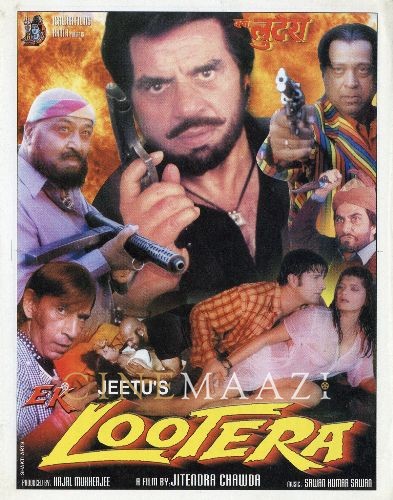
Ek Lootera 2001
-
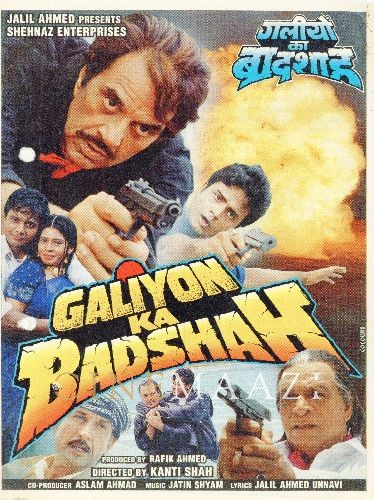
Galiyon Ka Badshah 2001
-

Jagira 2001
-
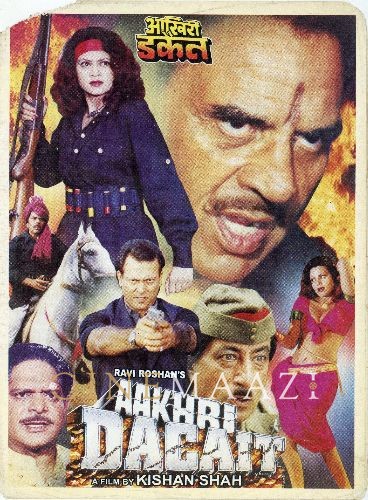
Aakhri Dacait 2000
-

Bhai Thakur 2000
-

Dacait 2000
-

Daku Kali Bhawani 2000
-

Geeta Mera Naam 2000
-
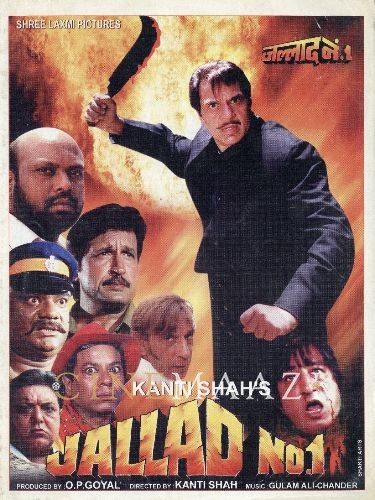
Jallad No. 1 2000
-



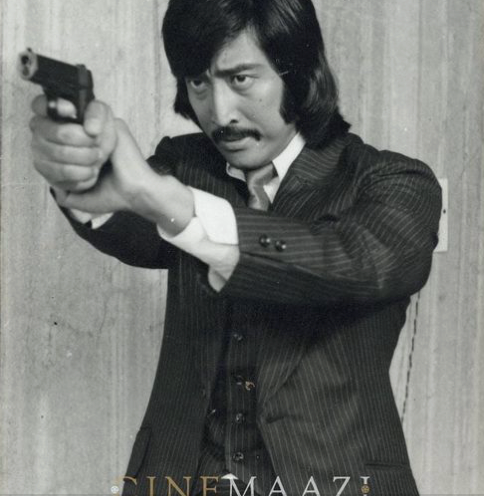

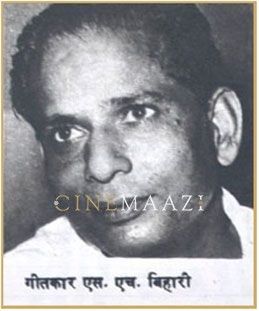




.jpg)



